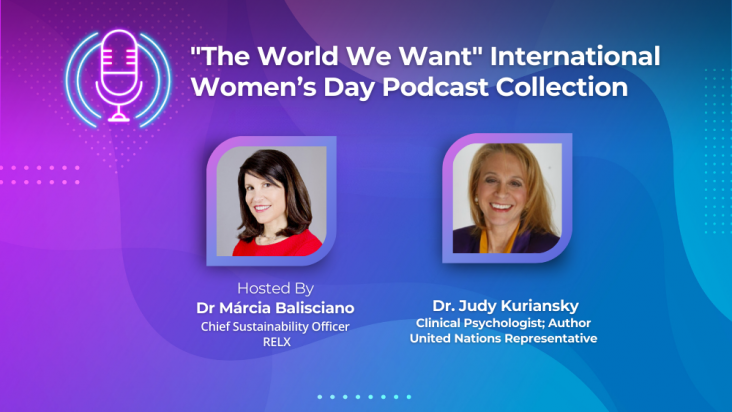
The International Women's Day "World We Want" Podcast Collection features the latest episodes in the RELX podcast series featuring renowned female leaders from across the globe.
This paper is about empowering women during the menopause and argues that an over-simplified narrative of menopause as a health problem to be solved by replacing hormones is not based on evidence and deflects attention from the need for substantial societal shifts in how menopause, and midlife/older women in general, are viewed and treated around the world.
This paper is about premature menopause (before the age of 40) and early menopause (40-44) and highlights the specific research and care needed by women experiencing premature or early menopause.
This article is about mental health and menopause and questions the assumption that menopause always causes mental health problems whilst also identifying specific at-risk groups who may need additional support.
This paper is about treatment-induced menopause after cancer care. It highlights how treatment-induced menopause can lead to more severe symptoms than natural menopause and these are often overlooked during cancer care – especially in LMICs.
"Women Supporting Women in the Sciences (WS2)—ws2global.org—is an international initiative unifying and supporting graduate- and professional-level women and allies in science, technology, engineering, and mathematics (STEM), while providing outreach to elementary- and secondary-level students. WS2 has been involved in the development of professional development workshops intended to empower university women and promote STEM careers. In their most recent venture, WS2 distributed low-cost physics and materials science lab kits that were designed virtually by international teams. These kits are relevant to elementary and secondary school students across the world, with initial focus on local schools in eastern Africa. In this Backstory, part of the WS2 leadership team (Dr. Joyce Elisadiki, Dr. Cecilia Rolence China, and Dr. Jill Wenderott) discusses how the Lab Kit Initiative came together and highlights outcomes and lessons learned from this project.
"
This article looks at important pathogenic components of PCOS which is reported to effect more than 10% of women worldwide. Reviews like this give an update on the current understanding of this widespread and complex endocrine related syndrome.
Position paper introducing a framework for an intersectional, equity-informed, data-driven approach to research on HIV and women and highlighting selected issues for women and gender diverse people, including HIV prevention, HIV cure, ageing with HIV, substance use and misuse, violence, pregnancy, and breastfeeding or chestfeeding
The results from this study indicate that the AI-based risk assessment predicts later stage breast cancers as high risk among women who currently are sent at home with a negative mammogram.

As a type of violence in intimate relationships, reproductive coercion encompasses a range of behaviours that exert external control over reproductive autonomy, from threats to coerce pregnancy to sabotaging contraception and controlling outcomes of a pregnancy, such as coerced abortion or forced continuation of a pregnancy. At a time when reproductive rights and bodily autonomy are under attack in many countries, and when adolescents (especially transgender and gender-diverse youth) are experiencing large barriers to health care, elucidating core characteristics of reproductive coercion, identifying harm reduction strategies, and preventing relationship abuse and reproductive coercion are of paramount importance.
